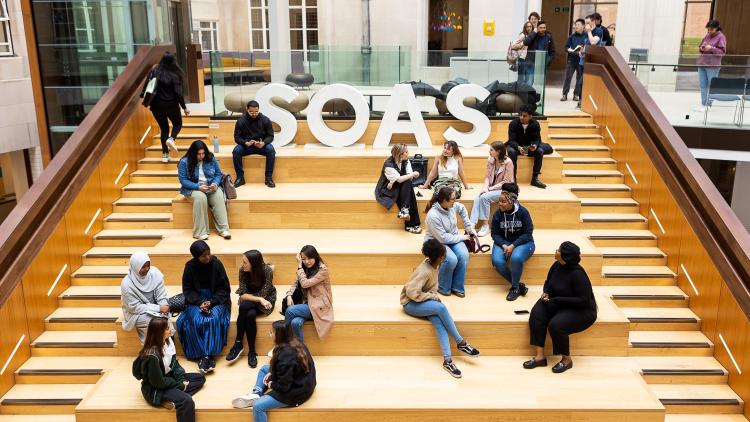SOAS Centre for Sustainable Finance Co-hosts Three Events at the Spring Meetings of the IMF and the World Bank


The SOAS Centre for Sustainable Finance co-hosted three events at the Spring Meetings of the International Monetary Fund (IMF) and the World Bank Group. The Spring Meetings bring together central bankers, ministers of finance and development, parliamentarians, private sector executives, representatives from civil society organisations and academics to discuss the state of the global economy, international development, and the world’s financial system. This year’s Spring Meetings took place in Washington, DC from 10-16 April 2023.
On 11 April, the Centre hosted a high-level roundtable on ‘Scaling up Climate Finance in Times of Debt Crisis’ at the World Bank, together with the German Federal Ministry for Economic Co-operation and Development. Mobilising private capital has been a cornerstone of the climate finance and SDG finance agendas. Thus far, however, the amounts of private capital that have been mobilised have been disappointingly low, raising serious questions regarding prevailing blended finance approaches. Taking account of the unfolding sovereign debt crisis in the Global South, the roundtable focused on alternatives approaches to mobilising private capital for climate action. The event started with introductory remarks by Jürgen Zattler, Director-General for International Development Policy at the German Ministry for Economic Co-operation and Development, and a presentation framing the challenges by Professor Ulrich Volz, the Director of the SOAS Centre for Sustainable Finance. In his presentation, Professor Volz highlighted the failure of the ‘billions to trillions’ agenda and project-based de-risking approaches to mobilise private capital at scale and called for an enhanced role of public development banks. Volz also emphasised the need for debt relief for a large number of developing and emerging economies as a precondition for reviving both public and private investment and argued that debt relief should be linked to policies that will enable green and inclusive recoveries. This was followed by interventions by Rola Dashti, the Executive Secretary of the UN Economic and Social Commission for Western Asia; Indermit Gill, the Chief Economist of the World Bank; and Shari Spiegel, the Chief of Policy Analysis & Development for Financing for Sustainable Development at the United Nations’ Department of Economic and Social Affairs. Further contributors to the roundtable included Sara Jane Ahmed (V20), Amar Bhattacharya (Brookings Institution), Barbara Buchner (Climate Policy Initiative), Charles Kenny (Centre for Global Development), Harald Hirschhofer (TCX) and Fiona Stewart (World Bank), among others.
On 11 April, the Centre co-organised a panel discussion on ‘Debt Sustainability and the Cost of Climate Inaction’ at the 2023 Spring Meetings Civil Society Policy Forum. Moderated by Boston University’s Maureen Heydt, the panel featured Lars Jensen (UNDP), Carola Mejia (Latindadd), Manrique Saenz (IMF) and Ulrich Volz who presented the latest report from the Debt Relief for Green and Inclusive Recovery project on Guaranteeing Sustainable Development. The event was co-sponsored by the Boston University Global Development Policy Center, the Heinrich Boll Foundation, Debt Justice, the Global Alliance for a Green New Deal, the International Trade Union Confederation, Latindad and Recourse.
On 15 April, the Centre for Sustainable Finance co-hosted a workshop on ‘IMF and World Bank Governance Reform: Enabling the International System to Meet the Challenges of the 21st Century’ at the Open Society Foundations. Running a whole day, the workshop comprised five panel discussions addressing different key governance issues at the World Bank and the IMF, including a review of IMF quota system, the rechannelling of Special
Drawing Rights, the World Bank’s president appointment process, and the ‘evolution roadmap’. Professor Ulrich Volz contributed to panel on the World Bank evolution roadmap along with Farwa Sial (Eurodad) and Jax Bongon (IBON International). The discussion was moderated by Lee Harris from The American Prospect. The event was co-organised with the Bretton Woods Project, Boston University Global Development Policy Center, University of Pretoria, International Development Economics Associates, Center for Economic and Policy Research, Arab Watch Coalition, Christian Aid, Heinrich Boell Foundation Washington DC, and Actionaid.


